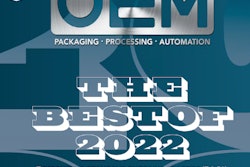“My reps are winging it on sales calls.”
“Our salespeople are acting in a reactive mode when in front of prospects.”
"When I ride along with my reps, their lack of preparation surprises me.”
Many of us learned Napoleon Hill’s famous quote at a young age: “Plan your work and work your plan.” Many might also be familiar with Ben Franklin’s quote, “If you fail to plan, you are planning to fail.” The challenge for most sales managers is that their people, both seasoned and brand new, are ignoring this wisdom regarding their sales call planning.
Whether it is an inbound lead, referral, or a cold call follow-up, most reps engage without a strategic “pre-game” sales plan. The primary reason salespeople will give for the lack of planning is having no time to do so. Although pre-call planning is a challenge, increased demand and the lack of supply amplifies the issue. Pricing, product inquiries, and the perceived need to respond quickly push even the most experienced salespeople into reactive price-quoting and order-taking.
Unfortunately, salespeople who have fallen into this transactional “customer service” approach are vulnerable to heavy price competition. Plus, the pressure to give additional profit-reducing concessions. The problems associated with this mindset are especially evident when salespeople are working on strategic opportunities and transformative equipment purchases. Many of these deals fail to close due to a lack of alignment with the key decision-makers above purchasing and lower-level contacts. Even when presented with an opportunity to expand existing accounts, things fall apart without a strategic plan.
I have a plan, it’s just not written…
Talk with the salespeople, and they’ll say that they are planning every call. From their perspective, a plan should focus on how best to fulfill the prospect’s request for information and pricing. Setting themselves up as a “valued resource” to the prospect drives the goal. The approach is more of a tactical routine than a strategic plan. It tends to be a one-size-fits-all that lacks critical thinking.
Typically, this consists of the following steps: ·
- Prepare all relevant supporting product material, demos, and pricing information.
- Pull together any available technical resources to bring to the sales call.
- Prepare questions to ask regarding technical needs and usage data to create a quote or proposal.
The missing piece in this plan is a route for qualifying the opportunity, gaining clarity on the decision framework, and securing next steps. While the basic plan is there—and managers appreciate the effort—it is misguided. Beyond preparing which solutions and pricing to present, most sales managers would like their salespeople to think much more strategically. The misalignment stems from the fact that most salespeople pride themselves on relationship-building rather than their process and planning skills. Compounding the issue is that most companies fail to give their salespeople clarity and ongoing guidance on creating a strategic pre-call plan.
Bridging the gap with coaching and sales call planning tools
So how do we create better pre-call planning alignment with our sales team? It starts with management taking responsibility for the misalignment and providing the sales call planning tools and ongoing coaching. This goes far beyond the occasional tactical sales training on prospecting, listening, and closing skills.
A solid pre-call planning tool should promote critical thinking about the known and the unknown while addressing the following questions:
- What are the prospect’s objectives and desired takeaways for the upcoming meeting?
- What are our objectives, target outcomes and next step goals for the meeting?
- What is the impact of the business and operational issues, concerns, and unrealized vision?
- Who will attend the meeting on the prospect’s side, and what concerns and questions do we need to address with each of them?
- What steps will the prospect take as part of the decision and budgetary process?
- Are there any other competitive alternatives they are evaluating or other priorities that will interfere?
The above questions are meant to help a salesperson organize their thoughts into a well-documented strategic plan. A good pre-call plan should help the salespeople consider all that remains to uncover about the account, the opportunity and the stakeholders involved.
How do we shift the sales culture to being more proactive around planning?
Change the organizational mindset and action will follow. The mistake we see many companies make when implementing sales call planning tools is taking the numbers-game approach. Management simply places a number as a goal for building plans, looking for quantity rather than quality. To drive adoption of a pre-call planning approach, requires ongoing coaching and mentoring. Rather than asking if they created pre-call plans for each meeting, sales management must prioritize reviewing the actual plans with the salespeople.
If we want our salespeople to think more strategically and plan more effectively, then we need to lead by example. Providing tools, training, and ongoing guidance is paramount in shifting company sales culture from reactive to proactive.
-Jay Spielvogel is the founder and CEO of Venator Sales Group























